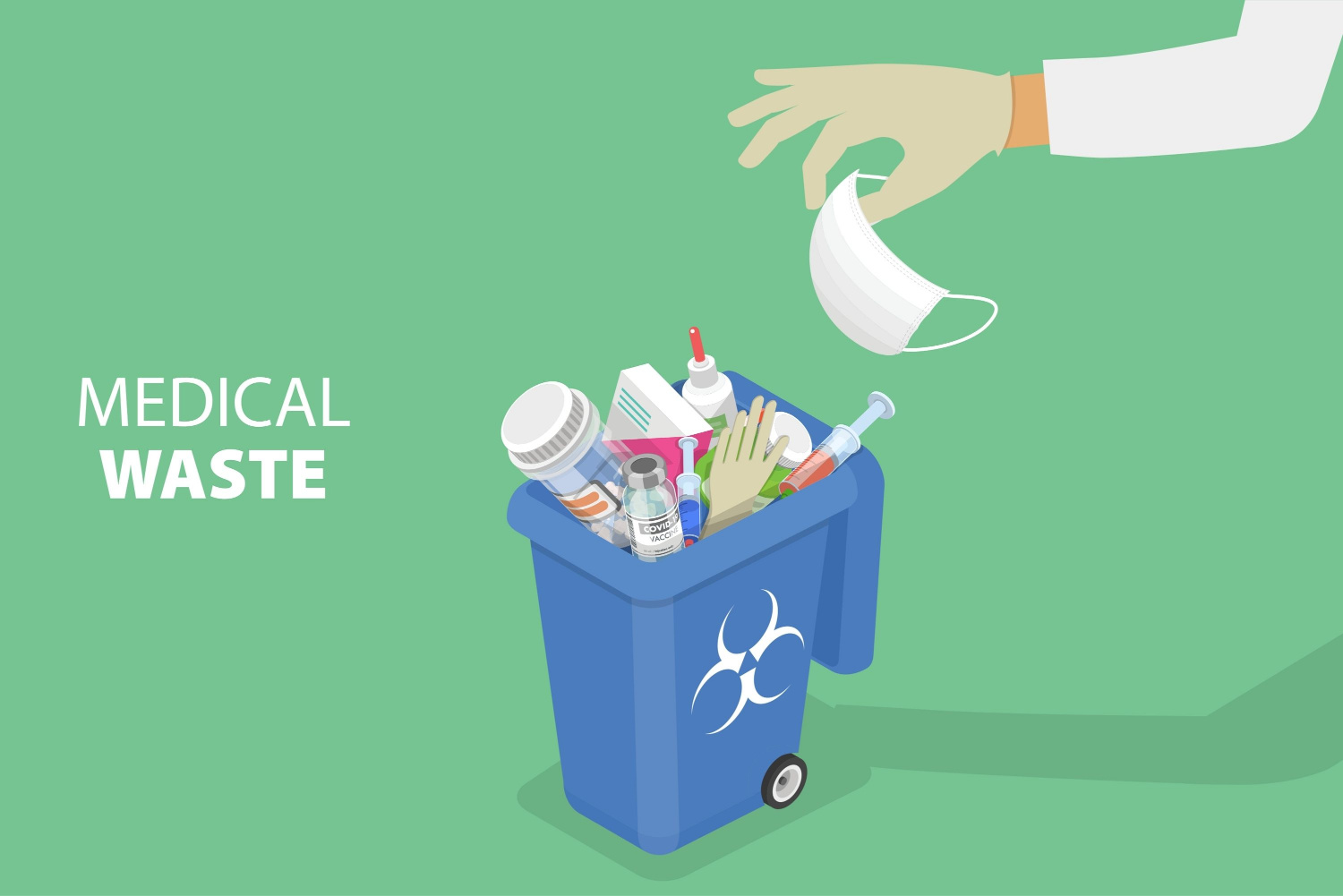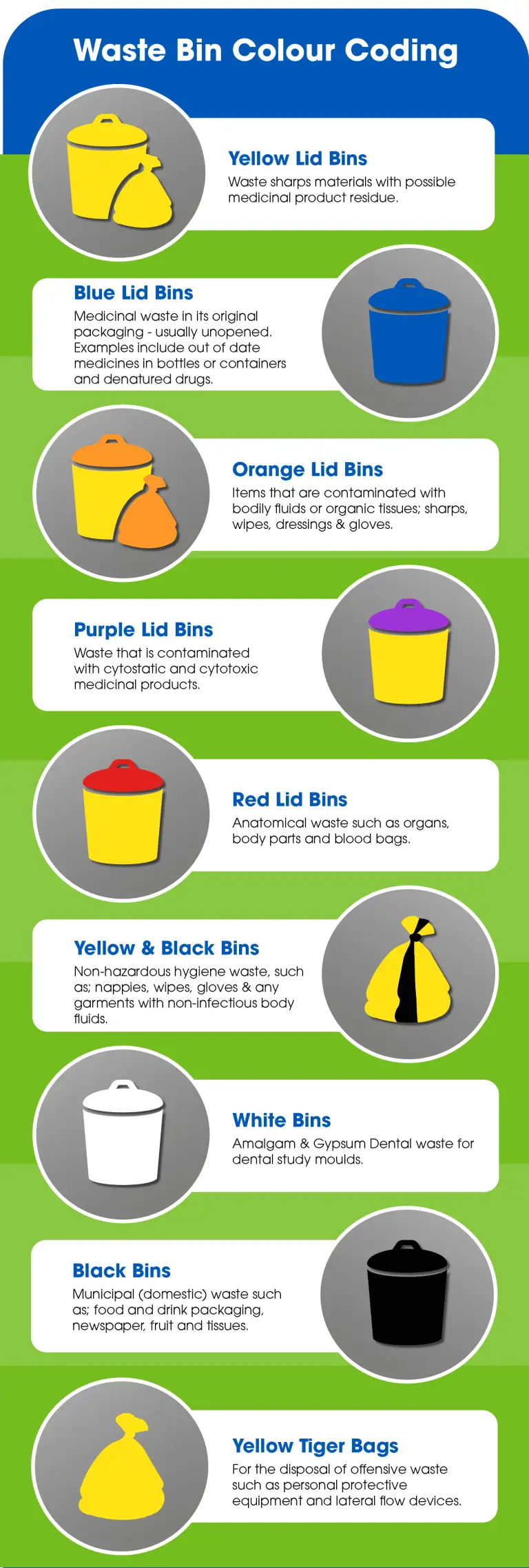Reliable Techniques of Medical Waste Disposal
Efficient approaches of medical waste disposal are crucial in preserving public health and environmental safety. Medical waste, including sharps, pathological waste, and pharmaceutical waste, have to be dealt with and gotten rid of effectively to stop the spread of infections and safeguard the atmosphere. This calls for adherence to stringent laws and the application of professional waste administration techniques.
Correct partition of clinical waste, secure and protected storage space, efficient therapy and disinfection approaches, and environmentally-friendly disposal alternatives are key components of an efficient medical waste disposal system. Expert waste management services play an essential duty in guaranteeing conformity with laws and decreasing the threats connected with inappropriate disposal. By utilizing these methods, medical care facilities can contribute to a more secure and cleaner environment while protecting the wellness of the neighborhood.
Correct Partition of Clinical Waste
Correct partition of medical waste is important for ensuring the reliable and risk-free disposal of these potentially unsafe materials. Clinical waste describes any type of waste generated during healthcare tasks, such as hospitals, clinics, research laboratories, and study facilities. It includes a vast array of materials, such as used needles, syringes, polluted dressings, ended or extra medicines, and organic materials.
By setting apart medical waste, medical care facilities can decrease the threat of infections, injuries, and ecological contamination. The procedure entails classifying waste into different kinds, such as sharps, infectious waste, pharmaceutical waste, and non-hazardous waste. Each type calls for certain handling, product packaging, and disposal techniques to stop exposure to medical care workers, waste management employees, and the basic public.
To make certain correct segregation, medical care centers should develop clear guidelines and give adequate training to employee. This includes enlightening employees on the different waste groups, proper product packaging strategies, and the use of ideal containers - WasteX Medical Waste Disposal. Furthermore, clear signage and color-coding systems can be carried out to help with the recognition and segregation of various waste kinds
Safe and Secure Storage of Medical Waste
Safe and safe and secure storage space of medical waste is important for keeping the honesty and containment of potentially hazardous products. Correct storage space not only shields healthcare employees and the public from direct exposure to dangerous substances but additionally protects against ecological contamination.
To guarantee safe storage space, clinical facilities need to abide by specific standards. To start with, waste must be saved in watertight and puncture-resistant containers that are identified suitably. These containers must be firmly sealed to stop any type of leakage or spills. Furthermore, the storage location must be safe and inaccessible to unauthorized employees, reducing the risk of accidental exposure.
Proper partition of medical waste is also crucial for risk-free storage space. Different types of waste, such as sharps, infectious materials, and pharmaceutical waste, should be divided to prevent cross-contamination. This partition can be achieved through making use of color-coded containers or containers.
Routine surveillance and evaluation of the storage area are crucial to determine any kind of potential threats or violations. This consists of checking for indications of damage or degeneration in the containers, guaranteeing appropriate air flow, and keeping an eye on temperature level and humidity levels.
Effective Therapy and Disinfection Approaches

One frequently utilized therapy technique is autoclaving, which includes subjecting the waste to high-pressure steam at temperature levels over 121 degrees Celsius. One more technique is incineration, which involves burning the waste at high temperatures.
Chemical disinfection is one more effective method for treating clinical waste. This method involves using anti-bacterials such as chlorine substances, phenolic substances, or hydrogen peroxide to eliminate or inactivate pathogens (WasteX Medical Waste Disposal). Chemical disinfection is typically used for liquid waste, such as lab samples or bodily fluids
In the last few years, alternative therapy approaches such as microwave sanitation, irradiation, and organic therapy have additionally obtained focus. These techniques use advantages such as minimized ecological impact and power usage contrasted to typical techniques.
Environmentally-friendly Disposal Options
In the world of medical garbage disposal, taking into consideration environmentally-friendly choices is critical. Healthcare centers create a considerable amount of waste, consisting of transmittable products, drugs, and chemicals, which can present severe dangers to human health and wellness and the setting if not handled appropriately. There are numerous environmentally-friendly disposal options offered that can aid mitigate these threats.
One such alternative is recycling. Recycling medical waste involves segregating and refining specific products for reuse or repurposing. As an example, plastics, glass, and metal containers can be reused, reducing the need for new products and reducing the amount of waste sent to landfills. In addition, some healthcare centers have actually executed recycling programs for certain clinical gadgets or devices, more decreasing waste generation.
One more environmentally-friendly disposal alternative is waste-to-energy conversion. This method entails converting medical waste right into power via processes like incineration or anaerobic food digestion. medical waste removal service. Incineration, when done correctly with sophisticated technologies, can generate energy while decreasing harmful discharges. Anaerobic food digestion, on the various other hand, breaks down natural waste in the absence of oxygen, creating biogas that can be used for electrical energy or warm generation.

Benefits of Professional Waste Monitoring Services
One substantial benefit of expert waste administration services is the improved efficiency in handling and getting rid of of clinical waste. Health care facilities generate a significant quantity of waste that includes dangerous products, such as sharp items, infected things, and possibly contagious waste. medical waste disposal service. Incorrect handling and disposal of clinical waste pose serious health and wellness dangers to workers, clients, and the general public. By making use of specialist waste management services, healthcare facilities can guarantee that all clinical waste is managed and taken care of properly, minimizing the threat of contamination and the spread of illness.
Expert waste management services employ skilled go to these guys and seasoned personnel that are experienced about the regulations and guidelines for medical waste disposal. They have access to specialized devices and tools that allow them to take care of various kinds of clinical waste securely and efficiently. These solutions also have well-established procedures and methods in place to ensure that waste is set apart, packaged, transported, and disposed of in compliance with neighborhood, state, and government regulations.
Additionally, expert waste administration services can provide healthcare centers with detailed waste management options. They can offer services such as waste collection, therapy, transportation, and disposal, customized to the certain requirements and needs of the center. This removes the concern of managing waste inside, allowing medical care staff to focus on offering quality individual treatment.
Conclusion
In conclusion, effective methods of clinical garbage disposal involve appropriate segregation, secure storage space, treatment and sanitation, and environmentally-friendly disposal alternatives (WasteX Medical Waste Disposal). These techniques ensure the risk-free handling and management of clinical waste, protecting against the spread of infections and protecting the atmosphere. Expert waste administration solutions play an essential role in carrying out these approaches and making certain conformity with laws. By adhering to these methods, healthcare facilities can add to a safer and healthier atmosphere for both clients and the area.
Medical waste, including sharps, pathological waste, and pharmaceutical waste, should be handled and disposed of effectively to prevent the spread of infections and shield the environment.Correct partition of medical waste, safe and secure and risk-free storage, effective treatment and sanitation methods, and environmentally-friendly disposal alternatives are key components of an effective medical waste disposal system. The procedure involves classifying waste into different types, such as sharps, infectious waste, pharmaceutical waste, and non-hazardous waste. By making use of specialist waste management solutions, healthcare facilities can guarantee that all clinical waste is managed and disposed of effectively, decreasing the danger of contamination and the spread of conditions.
Expert waste management services use qualified and knowledgeable workers who are educated regarding the policies and standards for clinical waste disposal.